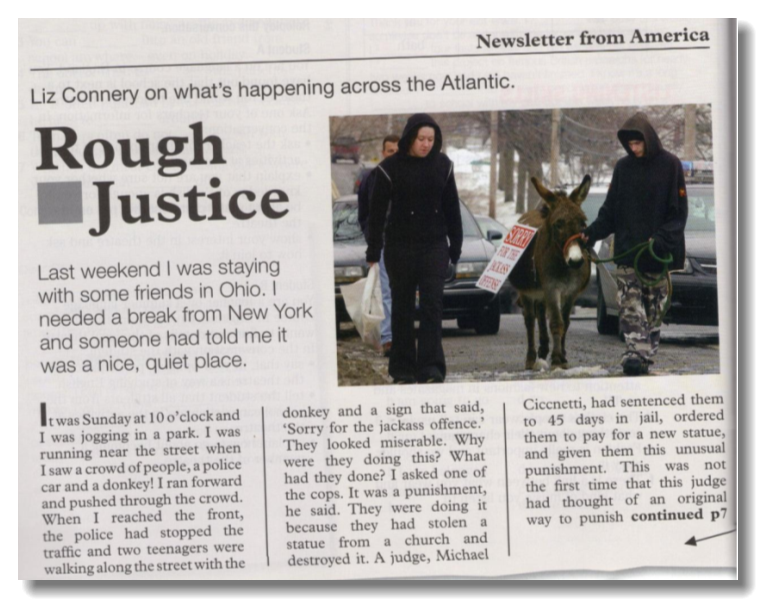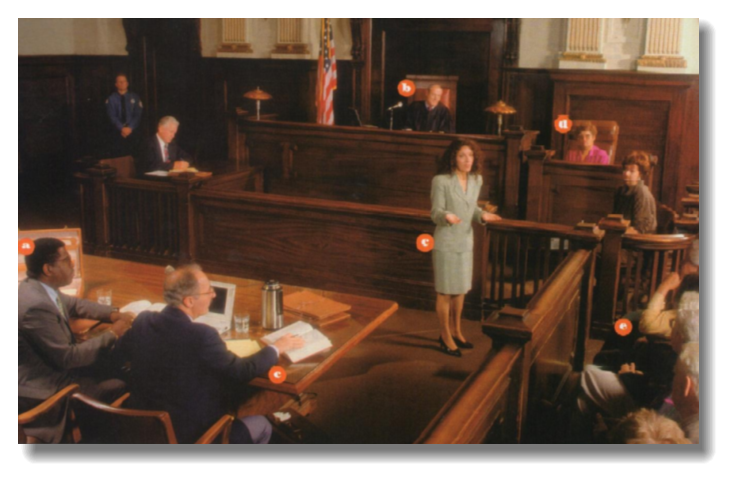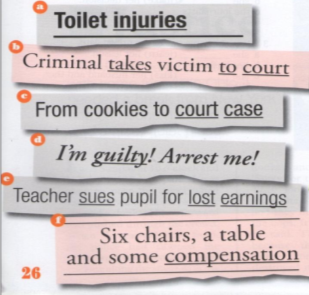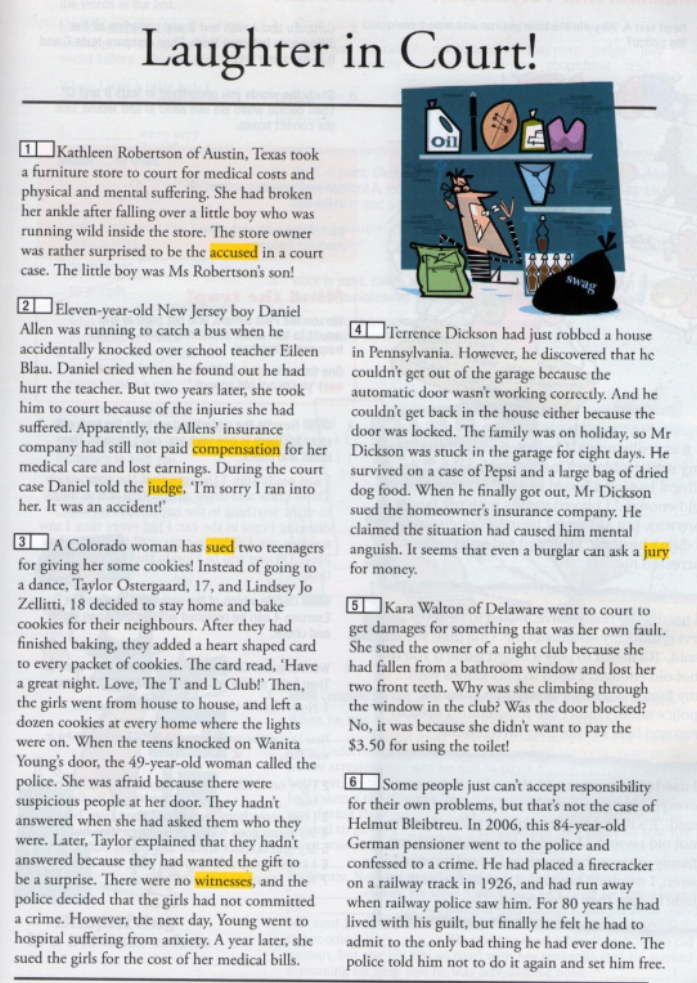Crime and punishment
Crime and punishment
Level – B1 – Intermediate
Teacher: Oksana Faryna, teacher- methodologist
Objectives:
- to motivate pupils in expressing their opinions on the questions under discussion;
- to introduce new vocabulary;
- to develop pupils’ reading skills in skimming for general information and scanning for specific words;
- to encourage pupils to work in pairs and groups;
- to develop pupils’ logical thinking, imagination and creativity;
- to teach pupils to respect and obey the law.
Equipment:
- Success Intermediate SB, TB
- Handouts with new lexical units and definitions to them;
- Oxford Wordpower Dictionary.
Procedure
- Warm up.
- Work in pairs. Describe the photo then answer the questions.(SB Ex.1, p.24)
- Where are two young people and what are they doing?
- This is their punishment for a crime. What do you think they did?
- destroyed a statue
- insulted some police officers
- stole a car
- Read the article and check your answers to the questions in Exercise 1.

- The main part of the lesson.
- Discussion
T: The boys were punished because they had stolen a statue from a church and destroyed it. Why are they punished for?
Pupils’ sample answers.
T: I think you’re right. In most cases people are punished because they don’t obey the rules, law. As a matter of fact people disobey the law because of many reasons. In your opinion, what are they?
Pupils’ sample answers.
T: How do you think in what countries of the world people break the law more often. Why? What nationalities never (seldom) break the law? Do Ukrainians break the law more often than German / French / American people? Why? Why not?
Pupils’ sample answers.
T: People in every country have to obey the law or different rules. You’re teenagers. What rules do you have to obey?
Pupils’ sample answers (school rules, library rules, traffic rules, etc.)
T: As we know the main law of every country is its Constitution. Every citizen of any country has to obey the law and tries not to commit any crime.
- Homework check.
Read these unusual punishments. Guess the crimes the people committed. (SB Ex.7,p.25)
- Bill had to visit nine fire stations and apologise to the fire fighters.
- Carl had to wear a dress, a wig and make-up in a busy shopping street.
- Dan invited a family to his house and asked them to take anything they wanted.
- Ed had to run a five-mile race.
Pupils express their ideas.
- Vocabulary Introduction.
to accuse sb. of sth – to say that sb. has done sth wrong or broken the law
the accused – the person who is said to have broken the law
jury – a group of members of the public in court of law who listen to the facts about a crime and decide if sb. is guilty or not guilty
guilty of sth – having broken the law
to sue sb. for sth – to go to a court of law and ask for money from sb. because they have done sth bad for you, or said sth bad about you
anguish – great mental pain or suffering
to confess – to admit that you have done sth bad or wrong
firecracker – a small firework that explodes loudly
evidence of sth – the facts, signs that make you believe that sth is true
- Reading and Vocabulary Practice.
- Look at the picture of a courtroom. Match people a-e with the words below. ( SB Ex.1,p.26)
|
accused |
judge |
jury |
lawyer |
witness |
 Key:
Key:
accused – a judge – b lawyer – c witness – d jury - e
- Read newspaper headlines a-f. Check the meanings of the underlined words. Then read texts 1- 6 and match them with the headlines. ( SB Ex.2, p.26)


Key:
1 – f 2 – e 3 – c 4 – b 5 – a 6 – d
- Read the texts again. Tick true and cross false sentences.
a) Kathleen Robertson sued her own son. _____________
b) Daniel Allen didn’t mean to hurt Ms Blau. _____________
c) The teenage girls from Colorado wanted to frighten their neighbours ._____________
d) Terrence Dickson is a burglar. _____________
e) Kara Walton couldn’t open the door of the toilet. _____________
f) Helmut Bleibtreu had felt guilty for 80 years. _____________
Key:
1.False 2.True 3.False 4.True 5.False 6.True
- Complete the sentences with the highlighted words in the text.
1.” A _____________ consists of twelve persons chosen to decide who has the best lawyer”. –Robert Frost.
2.After the witness had given his evidence, the ______________ confessed to the crime.
3.Was this the first time that a teacher had ______________ a student?
4.The ___________ shouted out, “ Order in court!”
5.A football player took an opponent to court to ask for ___________________ a broken leg.
6.The police are looking for _____________ to the robbery which took place at Murphy’s Jewellery late last night.
Key:
1.jury 2.accused 3.sued 4.judge 5.compensation 6.witnesses
- Work in groups. Imagine you are the jury and decide if these people should win or lose their cases.
- Kathleen Robertson
- Wanita Young
- Terrence Dickson
- Kara Walton
- Homework .
T: Your homework is to learn new words and definitions to them.
- Summing up.
T: Our lesson is over. I’d like to thank everyone for the good work in the lesson, for your active participation in our discussion. As for your marks, you get...


про публікацію авторської розробки
Додати розробку
